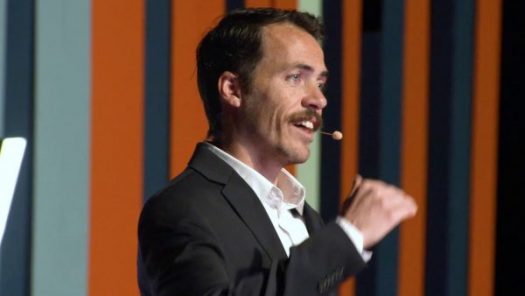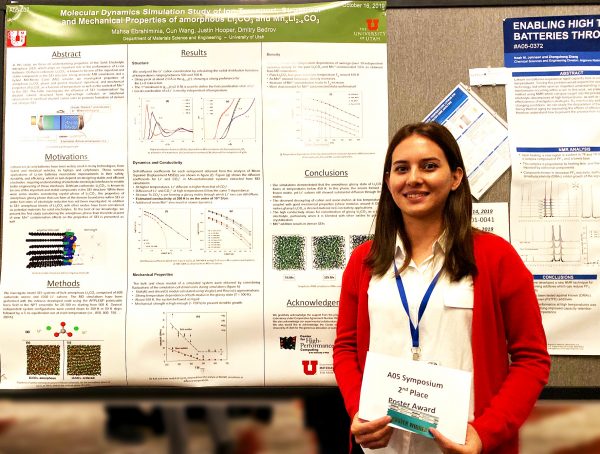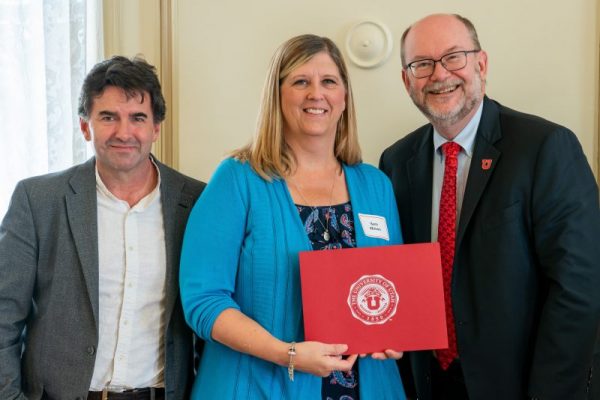Earlier this month, Allison Harward, Junior in Chemical Engineering (CE), Claire Decker, Junior in Materials Science & Engineering (MSE), and Collin Anderson, a Ph.D. candidate in Materials Science & Engineering, from Professor Michael Simpson’s Research Group were notified that they had been selected for funding from the U.S. Department of Energy’s University Nuclear Leadership Program (UNLP). These are prestigious awards that are highly competitive for students seeking to pursue careers in support of nuclear energy.
The UNLP awarded only 61 undergraduate scholarships and 28 graduate fellowships this year and Harward, Decker, and Andersen were the only recipients to receive scholarship at the University of Utah. Harward and Decker were awarded one year, $10,000 scholarships to complete their undergraduate studies while Andersen was awarded a three year, $162,000 fellowship to complete his Ph.D. program in Materials Science and Engineering.
The three are actively putting their funding to use. Harward is currently playing a key role in supporting a project funded by Idaho National Laboratory to develop a new pathway to treating radioactive electrorefiner waste salt for storage. Decker previously supported this same project in addition to assisting with a project funded by Lawrence Livermore National Laboratory to improve the efficiency of purifying actinide metals. And, Andersen, who earned his B.S. in metallurgical engineering from the University of Utah last year, is currently supporting a project funded by Idaho National Laboratory to develop a hydriding process for recovering uranium from used Advanced Test Reactor U-Al fuel. Under support from UNLP, he plans to expand his research to include treatment of uranium silicide-based fuel.
Andersen and Harward presented their research at the 2021 Winter Meeting of the American Nuclear Society in Washington, D.C. while Harward presented her work at the Annual Meeting of American Institute of Chemical Engineers last November in Boston and Decker presented her research at the 2021 Materials in Nuclear Energy Systems (MiNES) meeting last fall in Pittsburgh.

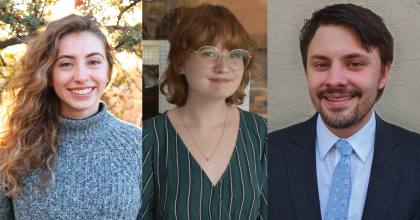
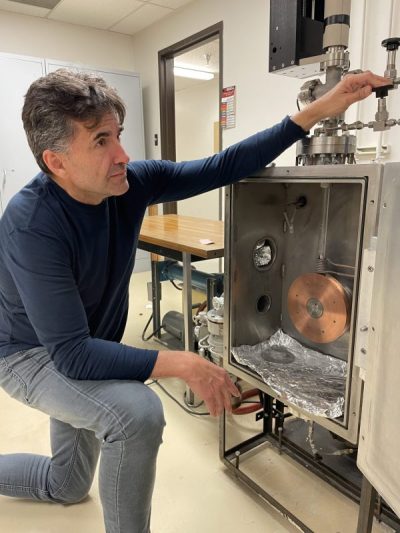
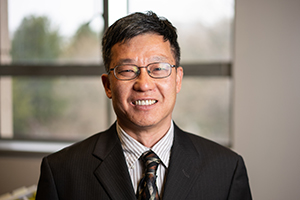
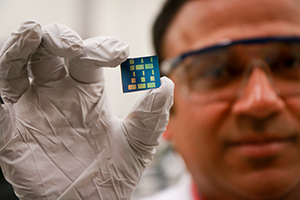
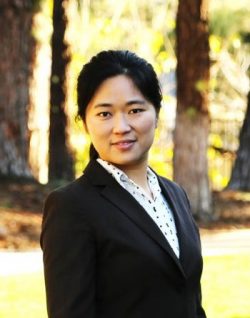
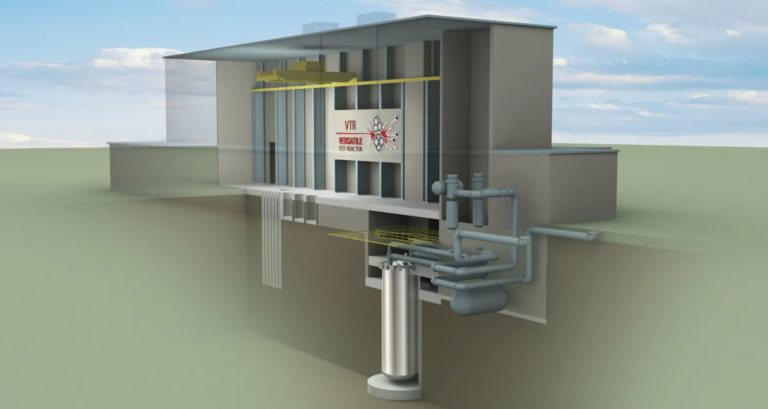

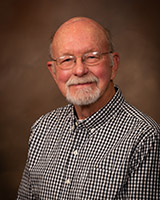 The National Academy of Inventors has released a new video about the legacy of Gerald Stringfellow, University of Utah Distinguished Professor of both electrical and computer engineering and materials science and engineering.
The National Academy of Inventors has released a new video about the legacy of Gerald Stringfellow, University of Utah Distinguished Professor of both electrical and computer engineering and materials science and engineering.